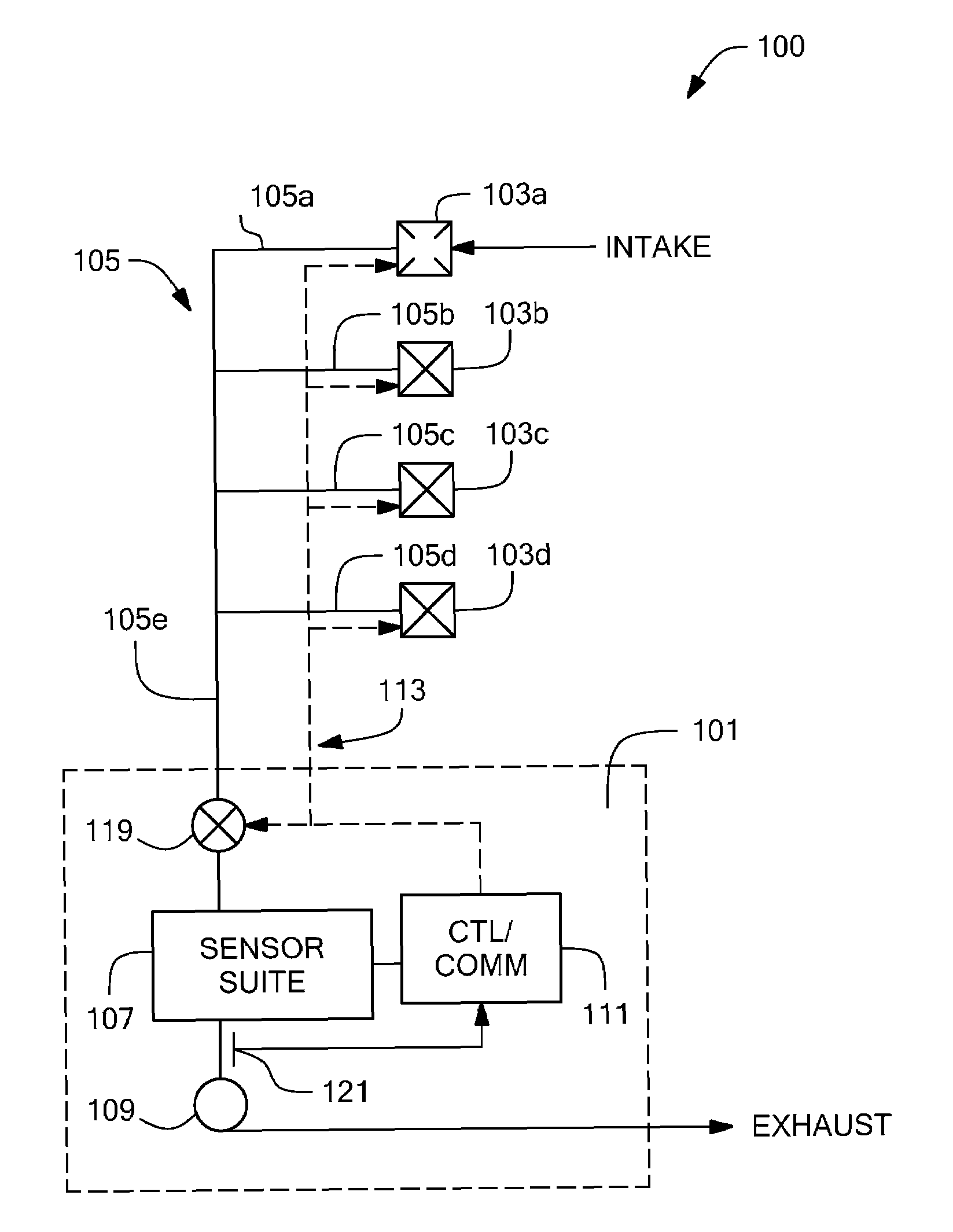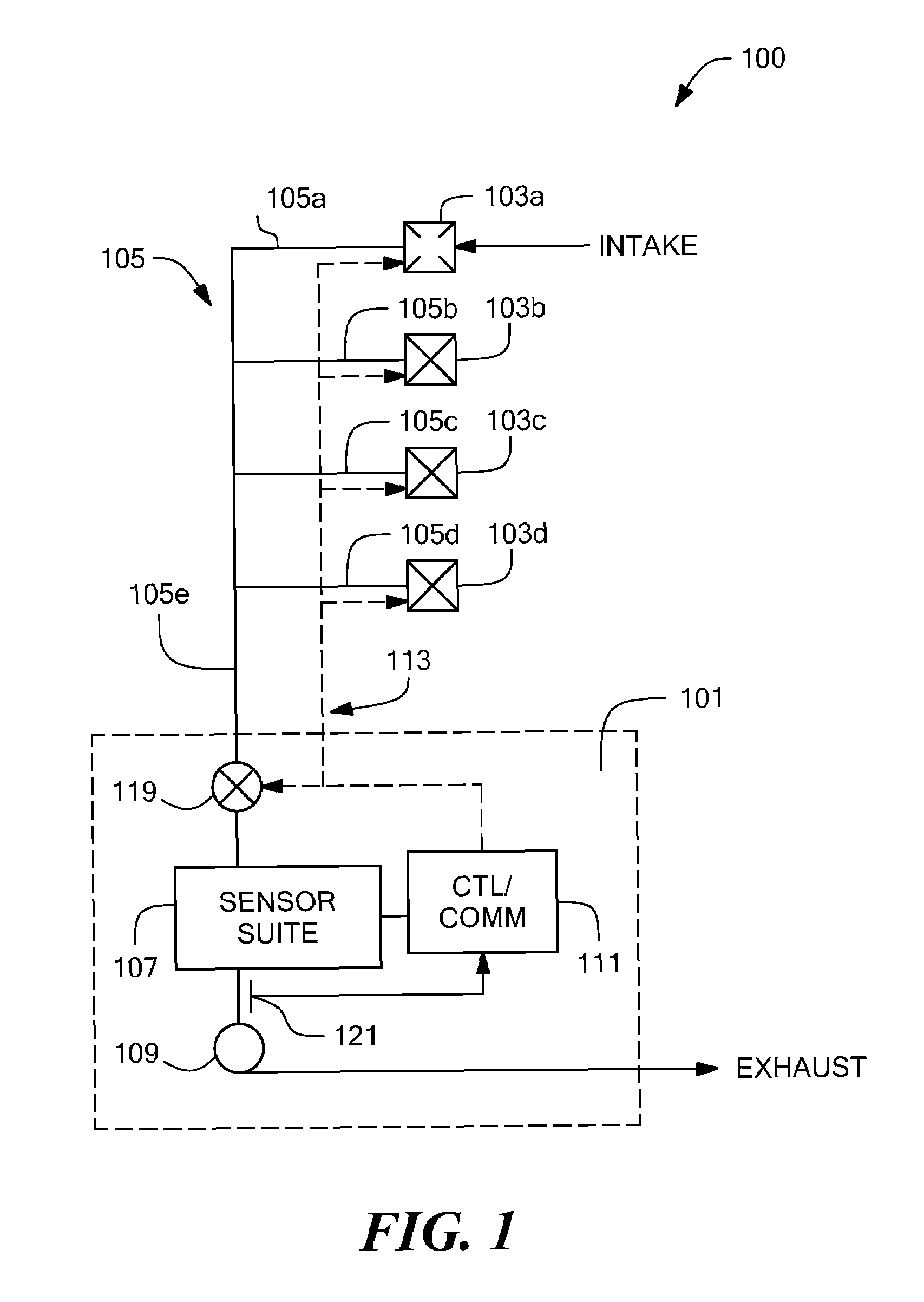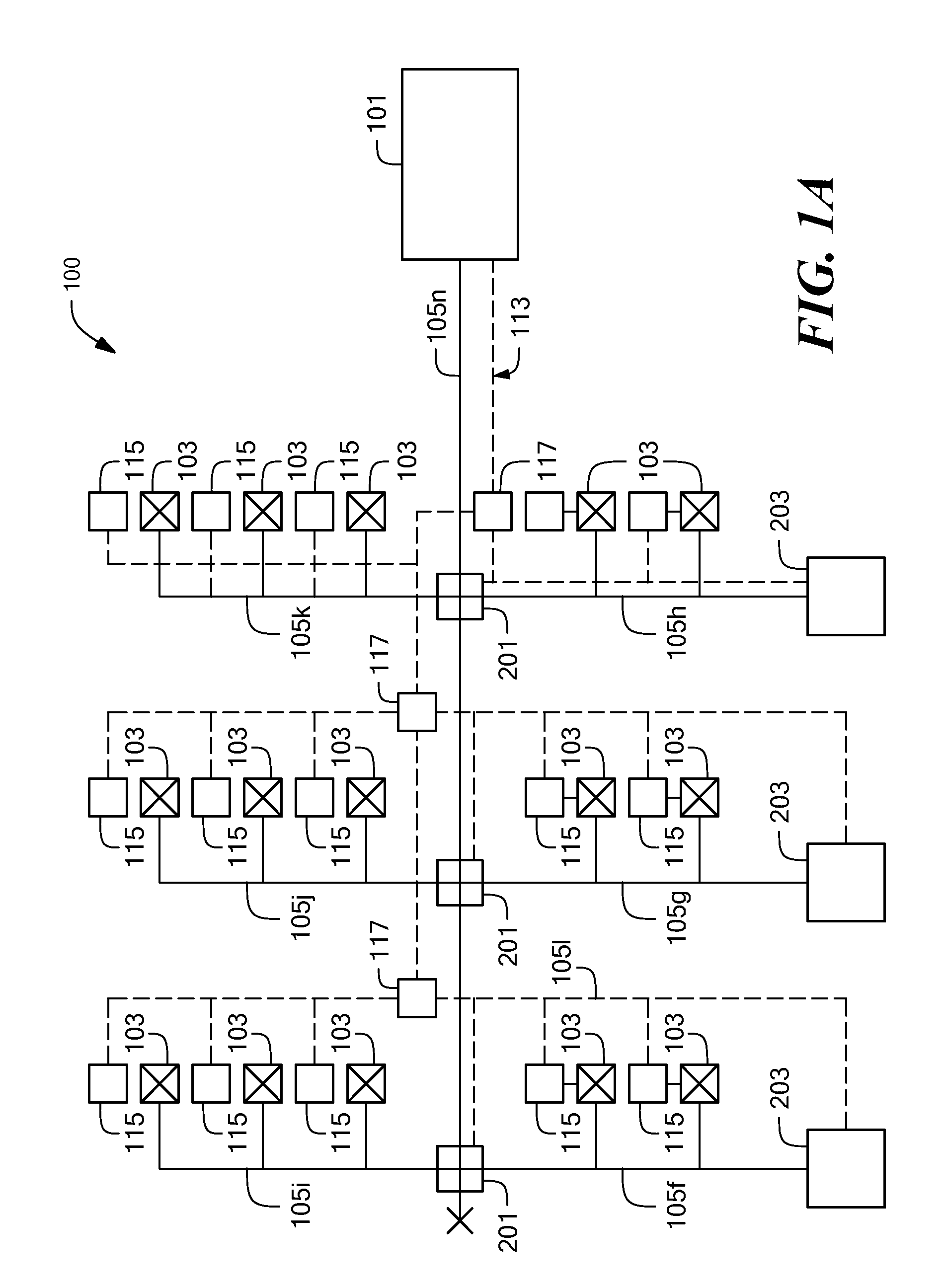Air monitoring system having tubing with an electrically conductive inner surface for transporting air samples
a technology of air monitoring system and electrically conductive inner surface, which is applied in the field of air sampling, can solve the problems of limited success of low or high density polyethylene (ldpe or hdpe) tubing, large amount of tubing, and inability to accurately measure the characteristics of air samples, etc., and achieves the effect of efficient transport of particulate matter with minimal absorption and off-gassing
- Summary
- Abstract
- Description
- Claims
- Application Information
AI Technical Summary
Benefits of technology
Problems solved by technology
Method used
Image
Examples
Embodiment Construction
[0039]FIG. 1 shows an exemplary air monitoring system 100 having tubing in accordance with the present invention to provide optimal transport of air samples. In general, the system 100 transports air samples or packets from a first location, such as a room, to a second location at which one or more sensors are located. The sensors measure various characteristics of the air, such as CO, CO2, TVOCs, dew point temperature and / or humidity, ozone, air PH, one or more of other gases or vapors such as, Nitrous oxide, SO2, SO, NO2, NO, ammonia, methane, hydrogen sulfide, refrigerants, and formaldehyde. Additionally, light obscuration sensors can be used to measure the amount of particulate matter in a given size range or a particle counter sensor can be used to provide information such as a count per unit of sample volume of small particles ranging from about 0.3 uM to about 2.5 uM, a count per unit of sample volume of large particles ranging from 2.5 uM to 10 uM, a count per unit of sample...
PUM
| Property | Measurement | Unit |
|---|---|---|
| thickness | aaaaa | aaaaa |
| outer diameter | aaaaa | aaaaa |
| outer diameter | aaaaa | aaaaa |
Abstract
Description
Claims
Application Information
 Login to View More
Login to View More - R&D
- Intellectual Property
- Life Sciences
- Materials
- Tech Scout
- Unparalleled Data Quality
- Higher Quality Content
- 60% Fewer Hallucinations
Browse by: Latest US Patents, China's latest patents, Technical Efficacy Thesaurus, Application Domain, Technology Topic, Popular Technical Reports.
© 2025 PatSnap. All rights reserved.Legal|Privacy policy|Modern Slavery Act Transparency Statement|Sitemap|About US| Contact US: help@patsnap.com



